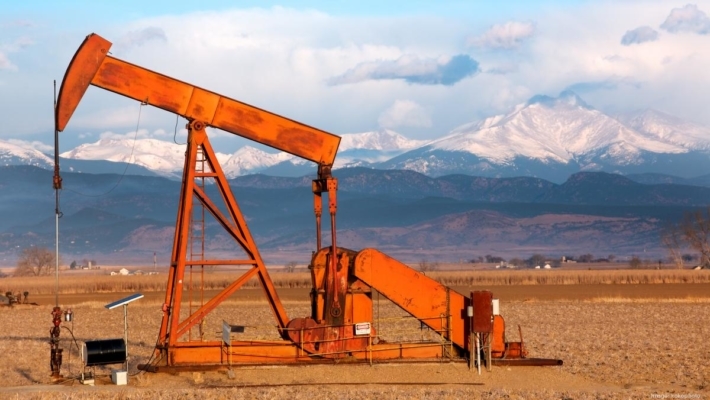A new report by a national industry group that says oil and gas development supports hundreds of thousands jobs in Colorado arrives amid robust discussions on the economic recovery and energy future of the state and nation.
The report released Tuesday by the American Petroleum Institute said oil and gas supported 69,000 direct jobs and 271,000 indirect jobs in Colorado in 2019, which is the latest data available. Nationally, the report found the industry supported 2.5 million direct jobs and 8.8 million indirect jobs, 5.6% of the total U.S. jobs.
The report’s findings on the industry’s economic contributions are important as the country rebounds from the pandemic and considers energy policies, said Frank Macchiarola,API’s senior vice president of policy, economics and regulatory affairs.
However, an analyst with an institute that supports a diverse energy economy, questioned whether some of the report’s numbers are inflated. The report lacks transparency, said Tom Sanzillo, director of financial analysis for the Institute for Energy Economics and Financial Analysis.
“This is an industry that is big and powerful and does provide a major contribution to the country’s economy. It doesn’t have to stretch it in order to make its point,” Sanzillo said.
The facts on job numbers and the state of industry matter because of the public debate over the continued use of fossil fuels, Sanzillo added.
But API said the report, prepared by PricewaterhouseCoopers, takes in oil and gas jobs across the industry, including pipeline operations and oil refining, which are included in different sectors in some government statistics. Macchiarola said the report, which API releases annually, draws from data by the U.S. Bureau of Economic Analysis in the Commerce Department and is supplemented by other data sources.
The BEA figures capture the people who are self-employed in the industry and individual partnerships, Macchiarola said, whereas the U.S. Bureau of Labor Statistics captures just the salaried employees.
Sanzillo said the report’s methodology isn’t clear, adding that more than 800,000 of the employees cited in the report work in gas stations and convenience stores. “Many of these convenience stores now host charging stations for (electric vehicles). Are they part of the solar and wind industry also?”
The trade group defended the report’s contents
“Service station workers are naturally included in these figures, as they represent an important part of the supply chain for liquid fuels and are by far the most visible part of our industry to the general public,” Lynn Granger, Colorado-API executive director, said in an email.
After factoring in wages, additional jobs supported by the industry and “induced impacts,” or personal spending by employees and business owners, oil and gas contributed $46.1 billion to Colorado’s gross domestic product, or 11.7%, in 2019, according to the report. Nationally, the industry’s impact was nearly $1.7 trillion of the GDP, or 7.9% of the total, the report said.
“The average wage in our industry is nearly double the private sector average wage in the U.S., so it’s not just the size of the job but quality of the job that the industry supports,” Macchiarola said. “At a time when policy makers are considering a broad range of policies that will impact the industry, it’s important to take stock of what’s at stake.”
The demand for oil and gas is near pre-pandemic levels, Macchiarola said, and experts believe the fuels will be used for decades to come.
* This story originally appeared in The Denver Post
Recent Posts
The U.S. Department of Labor Announces Proposed Rule To Protect Indoor, Outdoor Workers From Extreme Heat
The U.S. Department of Labor has proposed a new rule aimed at protecting workers from extreme heat hazards. This initiative seeks to safeguard approximately 36 [...]
Supreme Court Overturns Chevron Deference: What It Means for Workplace Safety and Regulation
The landscape of federal regulation is set for a seismic shift following a recent Supreme Court decision. On June 28, in Loper Bright Enterprises, et [...]
Navigating the Compliance Maze: How NARFA Simplifies Employee Benefits for Automotive and Trade Industries
In today's complex regulatory environment, businesses in the automotive, roads, fuel, and related industries face unprecedented challenges in managing employee benefits. Recent studies show that [...]




